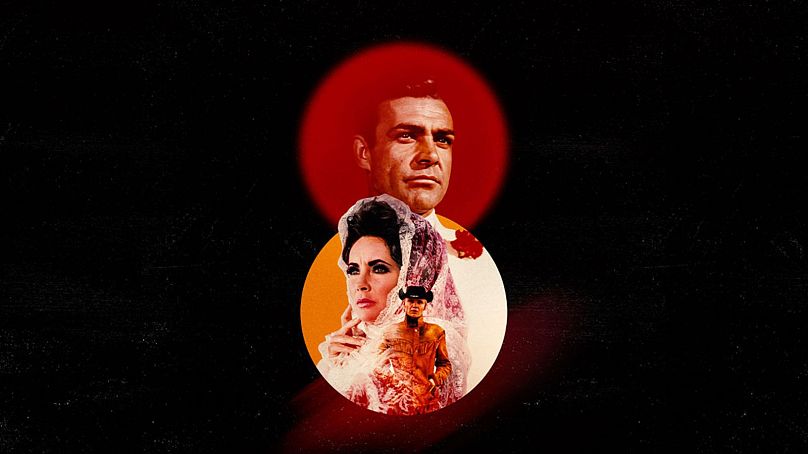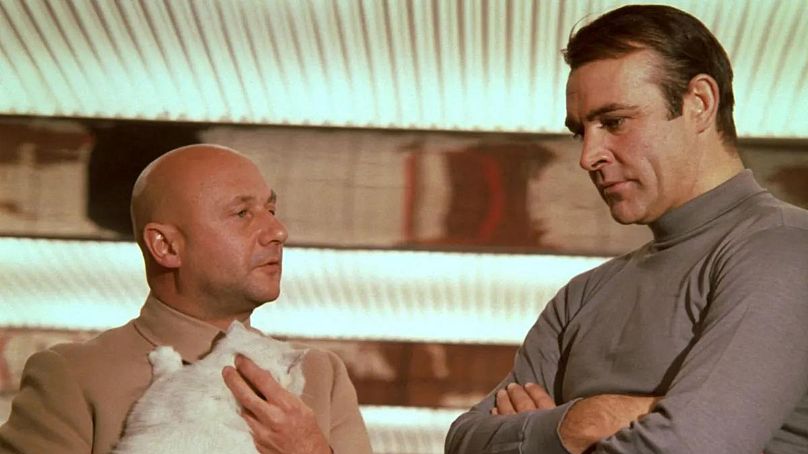He may have a license to kill, but also one to offend...
One year after Ian Fleming’s 007 books were revised to omit offensive references, more cautions are being made – this time by the British Film Institute (BFI).
 ADVERTISEMENT
ADVERTISEMENT
 ADVERTISEMENT
ADVERTISEMENT
Filmgoers are being warned about potentially offensive content ahead of new retrospective at the BFI, 'John Barry: Soundtracking Bond and Beyond', which will celebrate the work of composer John Barry.
Goldfinger (1964) and You Only Live Twice (1967) are the James Bond films selected for the first half of the event, with On Her Majesty's Secret Service (1969) included later in the March program.
The event page states: "Please note that many of these films contain language, images or other content that reflect views prevalent in its time, but will cause offence today (as they did then). The titles are included here for historical, cultural or aesthetic reasons and these views are in no way endorsed by the BFI or its partners."
In particular, You Only Live Twice comes with an additional warning: "Contains outdated racial stereotypes."
Other films that have been programmed as part of the Barry season include Midnight Cowboy (1969), which the BFI notes features “homophobic language and sexual violence”.
While these trigger warnings may not come as a surprise, especially in the case of early James Bond films, which feature aspects that have not aged well (certain lines of dialogue; reliance on racial stereotypes when depicting villains; casual misogyny; Sean Connery’s Bond trying to pass as Japanese – the list is endless), the pre-emptive assertion that these films will cause offence feels ludicrous at this point.
This leads to two questions. Are these trigger warnings really necessary? Shouldn’t audiences be credited with enough intelligence to understand that films are made within the context of their time, and stand as historical reflections of evolving cultural standings – for better and for worse?
The BFI states that the films reflect some outdated views, but still believes that these content warnings are necessary.
“As a cultural charity with responsibility for the preservation of film and moving image work and presenting it to audiences, we continuously face and deal with challenges presented by the history of film and television programmes and how they reflect views prevalent to their time,” a BFI spokesperson told The Guardian.
“The trigger warnings/content warnings that we provide in all of our exhibition spaces and online platforms act as guidance that a film or work reflects views of the time in which they were made and which may cause offence.”
At least they’re not editing the films like Ian Fleming Publications Ltd are the books.
As a reminder, and as stated at the start of this article, Ian Fleming’s James Bond books were rewritten to accommodate 21st century sensitivities, after Ian Fleming Publications Ltd commissioned a review by “sensitivity readers.”
The news followed increased scrutiny in the publishing industry, especially after the Roald Dahl series also underwent a similar review.
Euronews Culture spoke to Ian Fleming biographer Andrew Lycett to get his opinion on whether the 007 rewrites were the adequate way to celebrate the publication of Fleming's oeuvre.
Lycett described the move as “a form of censorship”, adding: “I feel pretty strongly that it is what Fleming wrote and that it should stay that way. He’s not around to “Yes, I agree”. Ian Fleming wrote what he wrote and the right thing is to keep it as it is.”












